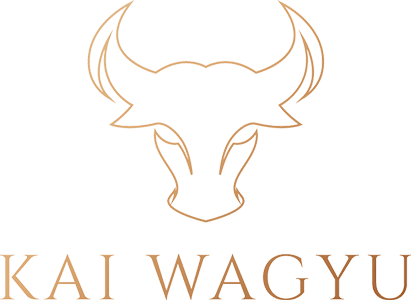How Japanese Wagyu has been Environmentally sustainable

Japan’s wagyu industry has gained worldwide acclaim for its rich, marbled beef that is highly coveted by food connoisseurs and chefs alike. However, what many people may not know is that the industry is also highly sustainable and environmentally cautious. In this blog post, we will explore the ways in which the Japanese wagyu industry prioritizes sustainable practices.
Preserving Japan’s Natural Resources
The Japanese wagyu industry places great importance on preserving natural resources. Japanese people have been more environmentally cautious as concerns about the Earth arises within media today, making environmentally sustainable practices more important than ever. This is especially important given Japan’s limited land area and high population density. As such, the industry has developed a number of strategies to ensure that the land is used efficiently and in a way that is environmentally responsible.
One of the primary ways in which the industry achieves this is through the use of rotational grazing. Rather than keeping cattle in one location for extended periods of time, farmers rotate their herds between different pastures. This allows the land to recover and regenerate, which helps to maintain soil quality and prevent overgrazing. It also helps to reduce the need for chemical fertilizers and other inputs that can be harmful to the environment.
In addition to rotational grazing, many wagyu farmers also use natural fertilizers such as compost and manure. This helps to improve soil fertility and reduce the need for synthetic fertilizers that can be harmful to the environment. Many farms also use cover crops, which are planted between grazing seasons to help improve soil health and reduce erosion.
Conserving Water Resources
Another important area of focus for the Japanese wagyu industry is water conservation. Given Japan’s mountainous terrain and limited water resources, it is essential that farmers use water efficiently and responsibly.
To achieve this, many wagyu farmers use irrigation systems that are designed to minimize water usage. Some farmers also use rainwater harvesting systems to collect rainwater for use on the farm. This helps to reduce the amount of water that is taken from rivers and other sources, which can help to conserve local ecosystems and prevent water shortages.
Reducing Carbon Emissions
Finally, the Japanese wagyu industry is also working to reduce its carbon footprint. This is especially important given the impact that agriculture can have on greenhouse gas emissions and climate change.
One way in which the industry is addressing this issue is through the use of renewable energy sources. Many wagyu farms use solar panels to generate electricity, which helps to reduce reliance on fossil fuels. Some farms also use biogas generators, which convert manure and other organic waste into energy.
In addition to renewable energy, many wagyu farmers are also adopting practices such as no-till farming and reduced tillage. These practices help to minimize soil disturbance and reduce the amount of carbon that is released into the atmosphere.
Conclusion
In conclusion, the Japanese wagyu industry is a shining example of how environmentally sustainable agriculture can be achieved without compromising the quality of the product. Through the use of practices such as rotational grazing, natural fertilizers, water conservation, and renewable energy, the industry is able to produce some of the finest beef in the world while also prioritizing environmental responsibility. As consumers, it is important that we support these efforts by choosing wagyu beef that has been produced in an environmentally conscious manner. By doing so, we can help to ensure that the wagyu industry remains sustainable and viable for generations to come.
